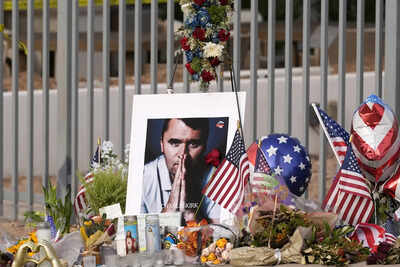
Since its inception in 2016, Turning Point USA’s (TPUSA) Professor Watchlist has sought to expose college professors who, the organisation claims, discriminate against conservative students or promote leftist ideologies in the classroom. The list, which has grown from fewer than 200 names to over 300 professors from more than 100 institutions, has recently returned to public attention following the assassination of TPUSA founder Charlie Kirk. At the University of Michigan, 30 professors currently appear on the list, The Michigan Daily reports.
A list that monitors academic activity
The Professor Watchlist is compiled using anonymous tips and media coverage highlighting professors’ statements or research perceived as politically biased. While TPUSA presents it as a tool to guide students, several academics argue that it functions as a form of surveillance. Professors have been included for a wide range of reasons, many unrelated to classroom teaching. For example, Anna Kirkland, a professor of women’s and gender studies, at the University of Michigan, was added for her comments on the overturning of Roe v. Wade. Betsey Stevenson, professor of public policy and economics, was included due to research on gender ratios in economics textbooks.Josh Pasek, professor of communications, media and political science, who appeared on the list in 2022, highlighted that the watchlist focuses on public statements rather than classroom activity. In an interview with The Michigan Daily, he said the citations against him were “for non-classroom activities that were based on data about what people thought” and suggested that the list was being used to make a political point rather than to flag genuine academic bias.
Concerns over chilling effects
Students and academics at the University of Michigan have voiced concerns about the watchlist’s impact on free expression. Allison Doroshewitz, co-chair of College Democrats, told The Michigan Daily that the list creates a “hit list for people,” potentially discouraging faculty from publishing or conducting research freely. She added that some of the reasons for inclusion were trivial or unrelated to classroom activities.Similarly, City Councilmember Ayesha Ghazi Edwin, a clinical assistant professor at the School of Social Work, warned that the watchlist could undermine debate and free speech by instilling fear among both students and faculty. Edwin noted that when academics are publicly shamed, it can affect students’ willingness to engage critically with ideas, creating a climate of caution rather than inquiry, The Michigan Daily reports.
Disparities in consequences
Not all faculty members experience the watchlist in the same way. German studies professor Silke-Maria Weineck, who was listed in 2022 following an op-ed in The Chronicle of Higher Education, observed that white professors may face fewer repercussions than colleagues of colour. She noted that while the list had not changed her own behaviour, faculty from marginalised backgrounds often face greater scrutiny and risk of harassment.
A contradiction in free speech advocacy
Critics point out an irony in TPUSA’s approach. Pasek argued that by targeting academics for their public statements, the organisation undermines the very principle of free speech it claims to champion. According to him, the watchlist is “an attempt to use various tools to push speech in a particular direction by either intimidating or encouraging some level of harassment,” according to The Michigan Daily.TPUSA representatives maintain that the watchlist is intended to guide students in navigating campus courses and professors, rather than to inhibit expression. Sarah Baldwin, vice president of TPUSA at the University of Michigan, told The Michigan Daily that the list aims to help students identify classes where they may feel most comfortable, emphasising that it is “not meant to infringe on their free speech or try to stop them from publishing papers or sharing their opinions.”
Implications for higher education
The debate surrounding the Professor Watchlist highlights broader questions about academic freedom, political bias, and the role of monitoring in universities. While TPUSA positions the list as a resource for students, professors argue that its public nature can foster self-censorship and diminish the scope for open debate. For higher education institutions, balancing transparency, student guidance, and protection of academic discourse has become increasingly complex in a politically charged environment.As the watchlist continues to expand and gain attention, the University of Michigan’s experience illustrates the delicate tension between student choice and the safeguarding of an open intellectual environment. Whether professors feel targeted or merely tracked, the long-term consequences for campus debate and academic research remain uncertain.








